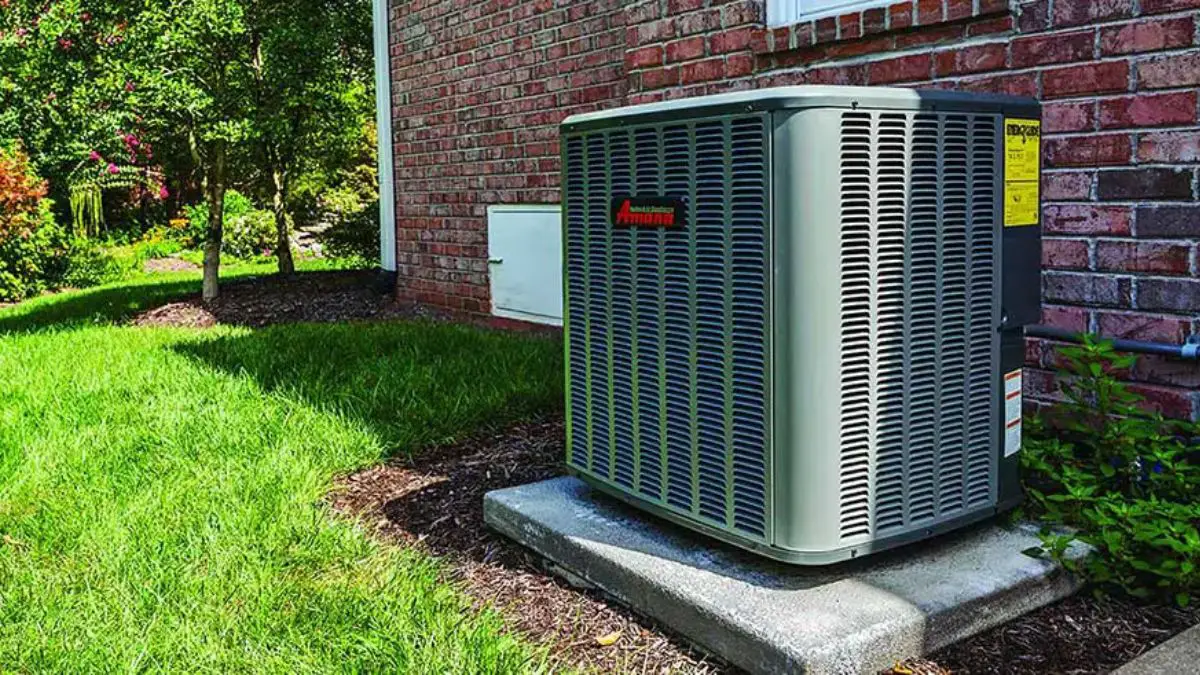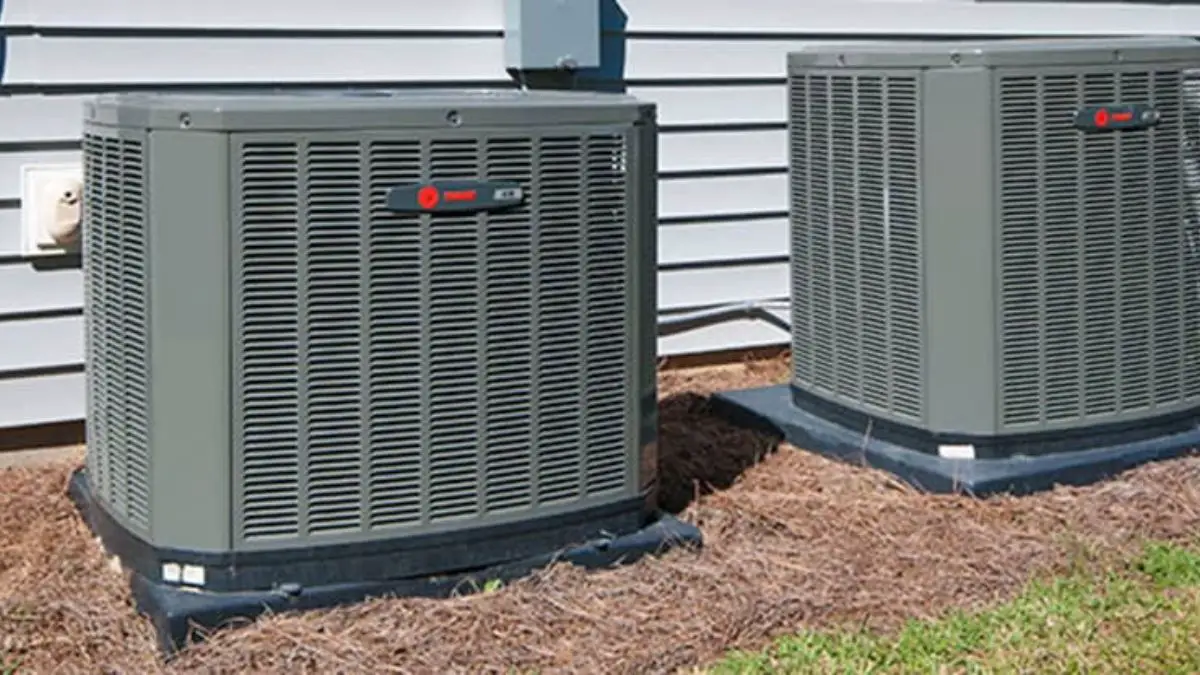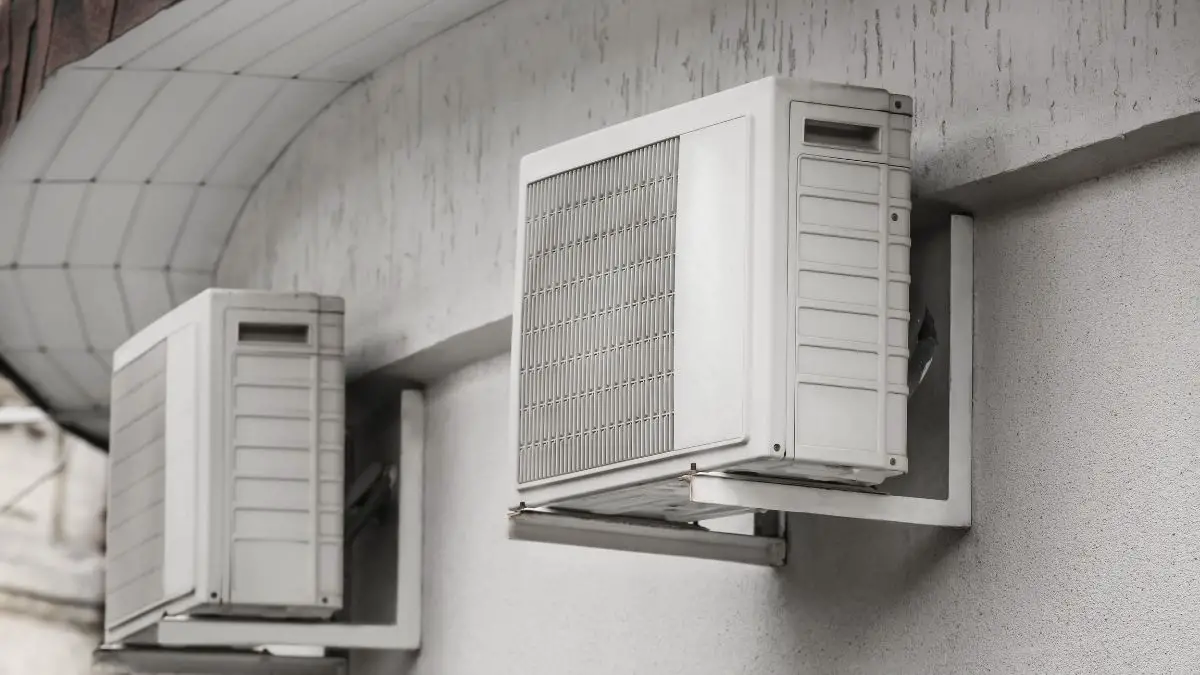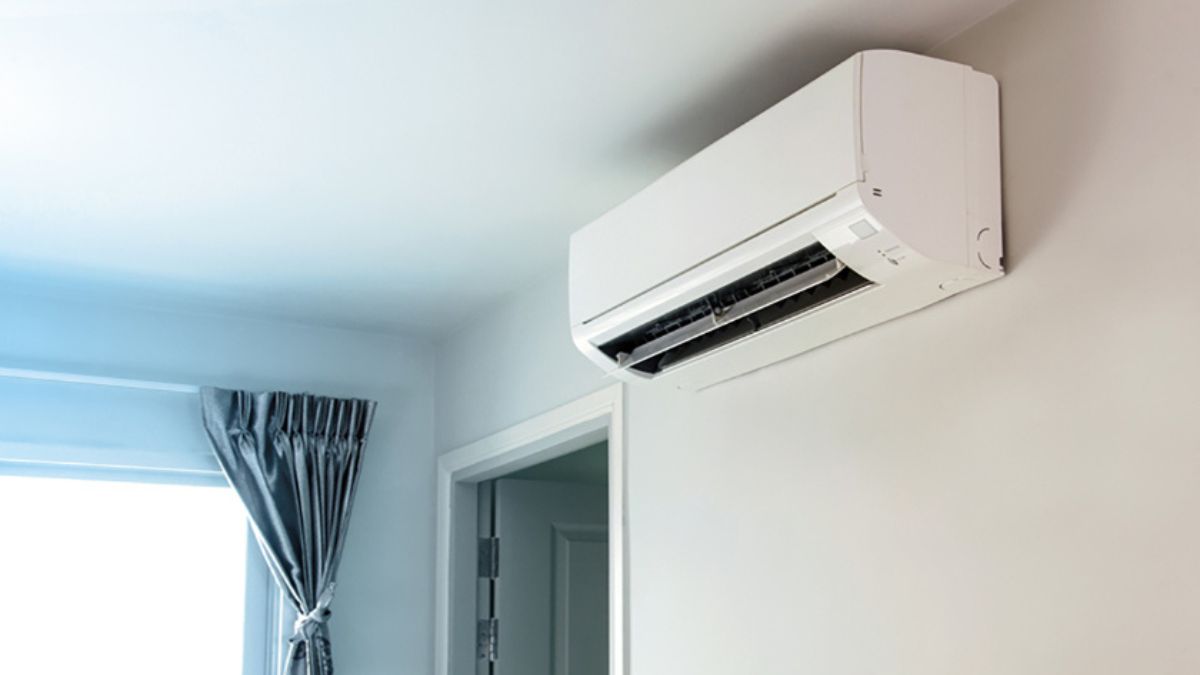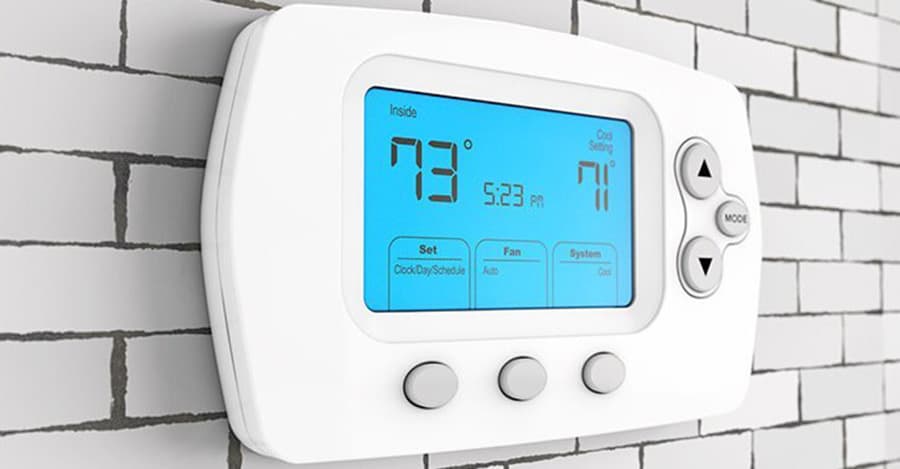
Your heat pump serves as an air conditioner to keep your home cool during summer. As the temperature outside warms, you need your heat pump to cool your house to keep it feeling comfortable indoors. If your home feels hot and sticky, your heat pump may not be cooling properly. You may wonder how cold the air from your heat pump is.
Air-source heat pumps should produce cool air 15 to 20 degrees cooler than the indoor air coming into the return vent in cooling mode. The temperature range is measured as a differential at the air supply and return vent. The heat pump will produce constant cool air within a few minutes of runtime until the thermostat setting is reached, provided the outside temperature is reasonable to allow efficient unit operation.
If your indoor temperature is 76 degrees and your thermostat is set to “Cooling Mode” and 72 degrees, your heat pump should produce cool air in the mid-50s to low-60s temperature range until the indoor temperature reaches 72 degrees.
Throughout this article, you’ll learn more info about heat pumps, including:
- The temperature that you should set it to during the summer
- How long it takes to cool down the house
- The operating details of heat pumps
What Temperature Should I Set My Heat Pump in the Summer?
Summer heat can be miserable in many parts of the world. When your heat pump works to cool your house down, it pushes out air about 15 to 20 degrees lower than the set temperature. For example, if you set the meter to 70 degrees, it’ll send out 50-degree air until the room is cooled down to 70 degrees.
It does this because it’s forced to fight and pull against the temperature already in your home. If the air is 90 degrees, then sending out 70-degree air will take several hours to have an ambient temperature of 70 degrees. If your system is not cooling correctly, the heat pump can run all day, trying unsuccessfully to reach the 70-degree temperature.
Your heat pump temperature shouldn’t be above 80 degrees Fahrenheit (27 degrees Celsius) during the summer. This setting will keep you feeling somewhat cooled off in sweltering hot weather. The most important thing to remember is that you need to keep the air circulating. Stagnant air builds humidity in your house, causing it to feel sticky and causing you to sweat more.
As Bass Air points out, the way that heat pumps cool your house is simple. It starts by moving the warm air over a series of cooling coils while cycling through refrigerants. The powerful combination causes the temperature to drop drastically.
The heat pump sends the air through your air duct system once the air is cooled down. This process sends low-degree air through all of the rooms with vents. You can adjust how quickly it cools your house down by following a few unique suggestions in the next section.
One of the best features of heat pumps is that they’re far more energy-efficient than most other cooling and heating appliances. You’ll notice an immediate reduction in your power bill, especially if you’re using it at the correct times of the day.
Although it might take more time, you’ll still be able to cool your house down quickly enough with a heat pump. Proceed to the next section to learn more about the estimated and exact wait times.
How Long Does It Take to Cool My House in the Summer?
A heat pump might make you think these multifunctional units have only one purpose. However, heat pumps are good at cooling down rooms and entire houses. The time it takes to cool your entire home depends on several factors. Depending on how air-tight and well-insulated the house is, it can take 1 to 3 hours to cool an entire house more than 5 degrees.
Let’s check out different ways to reduce heat pump time to cool down your home below.
- Get a high-powered fan to circulate the air faster. The Honeywell HT-900 Turbo Force Air Circulator Fan is among the best on the market. It’s budget-friendly, easy to use, and it’ll shave off at least half an hour of cooling time from your heat pump. The low cost and how long it lasts are more than worth the investment for most people.
- If you’re only cooling down one room, shut the vents and doors in all other house rooms. This process will force the cold air to stay in the living room, for example, cooling it down with the heat pump’s force. Keep in mind that the other rooms will stay relatively warm, though.
- The Spruce suggests keeping your windows covered with blinds or window tints. You’ll be surprised how much heat comes in through the windows during the peak of sunlight. The heat transfer from glass is terrible, which is why your windows sometimes feel hotter than the outside temperature.
- Remove moisture from the air with a dehumidifier. Humid air can feel warmer because it causes you to sweat and holds onto hot air for a long time. Get your hands on a simple dehumidifier to reduce the moisture in the air. They also prevent mold, mildew, foul odors, and dirty carpets.
- Clean the heat pump regularly. Like any other machine, your heat pump won’t operate at 100% of its potential if it’s clogged or dirty. Schedule heat pump service to check the coils and check the refrigerant levels. Don’t forget to clean the filter as recommended by your manufacturer. Dirty air ducts can also limit their cooling capabilities.
These suggestions will help reduce the time it takes for your heat pump to cool your house down. With sunlight in your favor and all of these tips applied, there’s no reason that you shouldn’t see a drastic temperature drop in as little as 30 to 60 minutes.
Will Heat Pumps Run Continuously in the Summer?
Your heat pump is made to heat or cool the temperature of your house in an efficient manner. If it were running 24/7, it wouldn’t save you any energy on the next bill. According to Galmiche & Sons, heat pumps can run continuously during the winter, but they shouldn’t keep running during the summer for more than a few minutes.
The heat pump’s SEER rating is one of the most significant factors in cooling efficiency. The SEER rating, also known as the Seasonal Energy Efficiency Ratio, measures how efficiently the system cools in the summertime. The higher the rating, the more efficient the heat pump operates.
If you notice that your heat pump is constantly sending out cool air without stopping, then it probably has one of three problems:
- There’s a refrigerant leak. If so, your heat pump won’t have enough refrigerant to keep up with its demand to cool down the room. It’ll pump out warm or lukewarm air, telling its sensors that it still has to keep pushing out more air.
- A temperature sensor failure. If so, it’ll never know when it’s finally reached the desired setting. For example, if you set it to 70 degrees but the sensor is broken, the heat pump will always think it has to keep sending out 50-degree air to cool it down.
- The air filter is dirty. Dirty filters often cause a vast array of heat pump issues. Luckily, it’s a simple fix. When there’s a clog in the air filter, it takes much longer and requires much more energy from your heat pump.
Conclusion
Heat pumps are multifunctional, working whenever you need them the most. Energy efficiency and quick-acting cooling power combine to make one of the best HVAC systems in the world.
Remember that you should perform regular maintenance to keep up with the heat pump. The air coming out should be 20 degrees lower than you set it to. You’ll be good to go if you have it at 80 degrees or lower in the summer to maintain indoor air temperatures and reduce indoor relative humidity!
Heat pumps can last 20 years. However, efficiency is advancing much faster. If efficiency is important to you, replacement may be desired much sooner than 20 years.
For information on how hot the air from a heat pump should be, see our article How Hot Should the Air Be From a Heat Pump.


